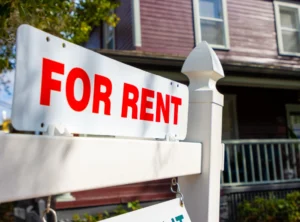Home·Property Management·Co-ops vs. Condos Explained: Pros, Cons, and Key Differences
Wondering whether to invest in co-ops vs. condos?

Co-ops vs. Condos Explained: Pros, Cons, and Key Differences
Wondering whether to invest in co-ops vs. condos? Before you make your decision, you should know about each one’s underlying legal structures, ownership models, and more. We’ll answer some common questions about them in this article. Read below to learn more.
Main Takeaways
- Co-ops involve buying shares in a corporation, granting you a lease to a unit, while condos mean direct ownership of a specific real estate unit.
- Co-ops typically offer a stronger community and more control but with rigorous approval processes and stricter rules; condos provide more flexibility and straightforward transactions.
- Taxes, financing, and investment potential differ significantly, making the “better” choice dependent on individual preferences, financial goals, and market conditions.
What is a Co-op?
A co-operative, or co-op, is a home in a corporation-owned building. When you buy one, you’re not buying tangible real estate. Instead, you’re buying shares in the corporation itself. With those shares, you get a proprietary lease to occupy a specific unit. So, in essence, you’re a shareholder in a private company whose primary asset is the building itself.
The corporation’s board of directors handles the building’s maintenance, finances, and rules. Meanwhile, as a co-op shareholder, you pay monthly maintenance fees. In turn, those fees help cover the building’s operating expenses, property taxes on the entire building, underlying mortgage (if any), and amenities. In that way, you are expected to help co-operate the property.
What is a Condo?
In the meantime, a condominium (condo), tends to be closer to what most people think about when they imagine real estate ownership. When you buy a condo, you’re buying an individual unit in a building. You hold a deed to your individual unit. That includes the interior space, of course. However, it also typically involves a percentage of the building’s common elements (e.g., hallways, roof, common areas like gyms or pools).
If you own a condo, you’re responsible for the unit’s mortgage, its maintenance, and property taxes. You’ll also have to follow homeowner association (HOA) rules and pay HOA fees. These fees might be pesky, but they serve a purpose. They fund the common areas’, shared utilities’, building insurance’s, and amenities’ maintenance.
Co-ops vs Condos: Key Ownership Differences
The fundamental difference between co-ops and condos are all about what you own when it comes to each investment.
In a co-op, you don’t own an actual property: you own corporation shares. Since you own a share, you have the right to occupy a unit. In our experience, the co-op board has a huge say over who can buy into the building. So, you usually will go through a rigorous interview process before they approve you. This process is very standard for co-ops.
In a condo, you do own a real property – a specific unit. In comparison to co-op boards, condos have homeowner’s associations (and their boards). Generally, though, HOAs don’t have the power to veto selling a property to you. That said, you do need to meet certain financial qualifications (like being able to get a mortgage). Because of all that, from what we’ve seen, buying and selling one typically is more straightforward and smoother than you’d deal with for a co-op.
Get a Free Multifamily Loan Quote
Access Non-Recourse, 10+ Year Fixed, 30-Year Amortization
Lifestyle Fit: Which Is Right for You?
Your lifestyle preferences play a significant role in determining whether a co-op vs. a condo is a better fit.
Co-ops often appeal to those who seek a strong sense of community and a more tightly controlled living environment. Co-ops tend to prioritize only allowing residents who are financially stable and have a history of getting along with tenants. So, you might have a more stable experience with a co-op.
Also, the board enforces building rules to maintain order and property values. Some like these rules, and some find them restrictive. In particular, we’ve seen that the board can restrict renovations or the ability to rent out your unit.
On the other hand, condos typically give you more flexibility and independence. Because you directly own the condo itself, you generally are freer to alter your unit (within HOA guidelines). And even though HOAs have rules and limitations around rentals, you still may have an easier time renting your condo out than you would for a co-op.
Also, if you value privacy, condos might be a good bet. However, if you seek community, it might be a mixed bag: the community feel in a condo can vary from very active to very hands-off.
Taxes and Legal Differences
The tax and legal implications of co-ops vs. condos also diverge.
For co-ops, property taxes are assessed on the entire building, and the co-op corporation pays them. Then, shareholders contribute to these taxes through their monthly maintenance fees. Also, from a tax deduction perspective, co-op owners can generally deduct their share of the building’s real estate taxes and the interest on the co-op’s underlying mortgage (if applicable).
In addition, financing a co-op also tends to work differently. Rather than having a traditional mortgage, you secure something called a “share loan.” This is a loan against the shares in the co-op corporation. It isn’t, however, against real property.
For condos, each unit’s property taxes are assessed individually. Condo owners receive their own property tax bill and are directly responsible for paying it. They can deduct their property taxes and mortgage interest (if applicable) on their individual tax returns, similar to owning a single-family home. Financing a condo involves a traditional mortgage. So, the process likely will be more familiar to most lenders and borrowers.
Legally, corporate law, as well as and the co-op’s proprietary lease and bylaws, govern co-op ownership. If you have disputes or issues, the co-op board will often get involved. This can complicate matters because of the corporate structure you have to navigate. Then, with condos, real estate law, the unit’s deed, and the condo association’s declaration and bylaws govern them. So, that’s how they differ.
Co-ops vs Condos: Pros & Cons Table
| Feature | Co-op (Co-operative) | Condo (Condominium) |
| Ownership | Shares in a corporation with a proprietary lease | Direct ownership of a specific real estate unit |
| Approval Process | Rigorous board approval required for buyers (interviews, financial review) | HOA typically does not have veto power over sales, though financial checks may be done |
| Flexibility | Less flexibility for renovations, renting out units, etc. | More flexibility for renovations and renting out units (within HOA rules) |
| Community | Often a stronger, more controlled community | Community feel varies, generally less controlled |
| Property Taxes | Paid by corporation, passed through in maintenance fees | Paid individually by unit owner |
| Financing | Share loans (less common, fewer lenders) | Traditional mortgages (readily available) |
| Maintenance Fees | Covers building expenses, property taxes, underlying mortgage | Covers common area maintenance, insurance, amenities |
| Resale | Can be more restrictive due to board approval process |
Generally more straightforward resale process |
Which Has Better Investment Potential?
The investment potential of co-ops vs. condos largely depends on your location, market conditions, and the building in question.
Historically, in some highly competitive urban markets like New York City, co-ops have sometimes been seen as a more affordable entry point into a desirable neighborhood compared to equivalent condos. Co-ops tend to be cheaper because their ownership is more restricted. This can limit the pool of potential buyers and that, in turn, can affect their demand.
However, the more liquid and less restrictive nature of condo ownership often makes them more appealing to a broader range of buyers, including investors looking for rental income. Condos generally have a larger resale market. Also, from what we’ve seen, they may appreciate at a faster rate in certain markets because they’re typically easier to sell and rent out.
Factors that influence investment potential include:
- Location: Prime locations often see strong appreciation for both housing types.
- Market Demand: If there’s high demand for rental properties, condos might have an edge due to their easier rental policies.
- Building Health: A well-managed co-op or condo association with strong financials and a well-maintained building will always be a better investment.
- Rules and Regulations: Highly restrictive co-op rules (e.g., strict no-rental policies) can limit future resale value or rental income potential.
In conclusion, while both co-ops and condos offer unique advantages, the “better” investment depends heavily on your individual circumstances and market dynamics. Condos often provide more straightforward ownership and broader appeal, potentially leading to greater liquidity and appreciation.
However, a well-run co-op in a desirable location can still be an excellent long-term investment, especially if you value community and a more controlled living environment. It’s essential you do your due diligence to see which one aligns more with your goals.
Source: Bay Property Management Group
Get AAOA's Newsletter
Property Management News Categories
- Affordable Housing
- Collections
- COVID-19
- Eviction
- Fair Housing
- Financing
- Going Green
- Government
- Investing
- Landlord Forms
- Landlord Quick Tips
- Latest News
- Leasing
- Legal Brief
- Legal News
- Maintenance
- Make Extra Money
- Marketing Vacant Units
- Property Management
- Real Estate Investing
- Real Estate Trends
- Remodel and Repair
- Rent Magazine
- Security Deposit Alternatives
- Social Media
- Tax Tips
- Technology
- Tenant Screening
- Uncategorized













 Accessibility
Accessibility